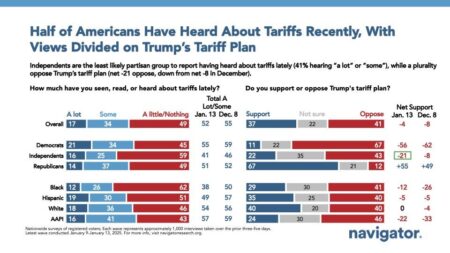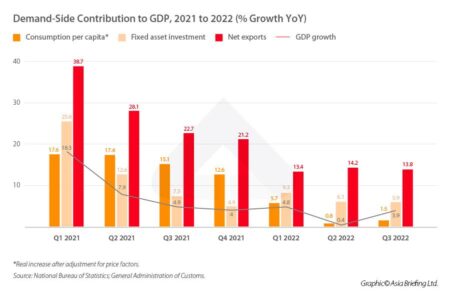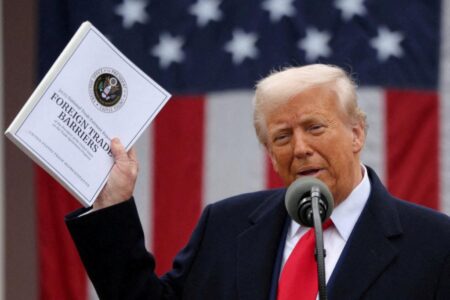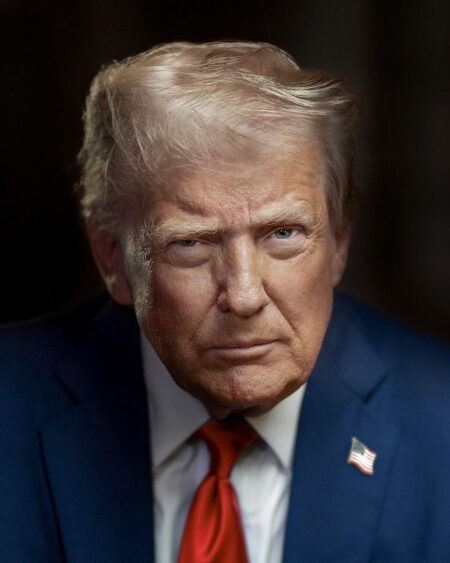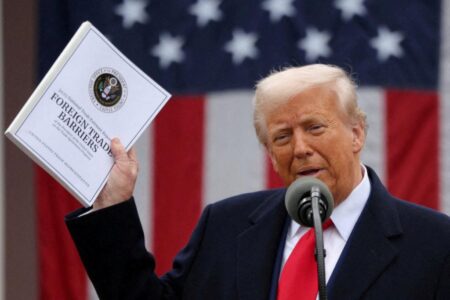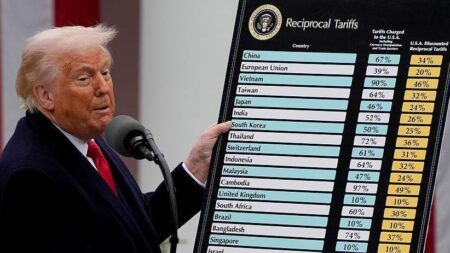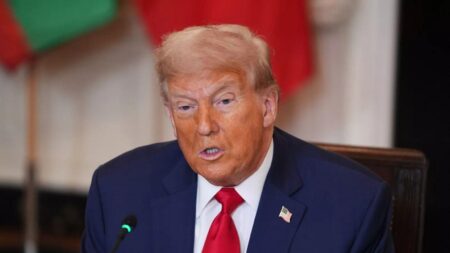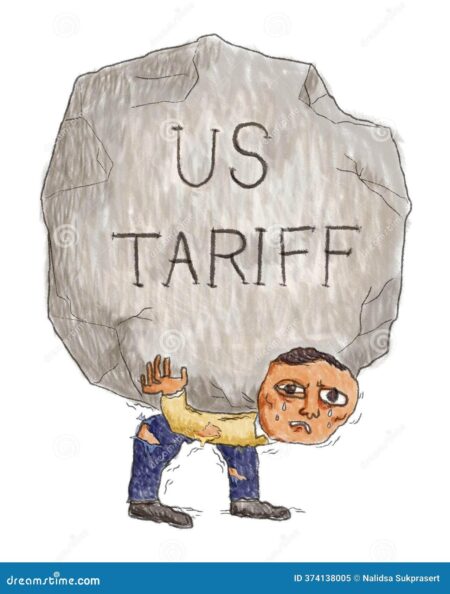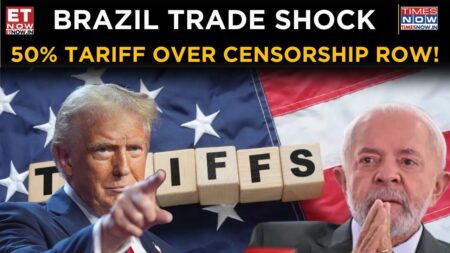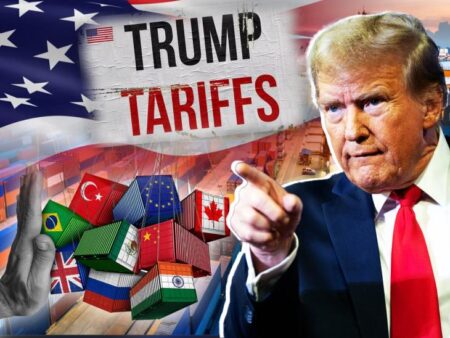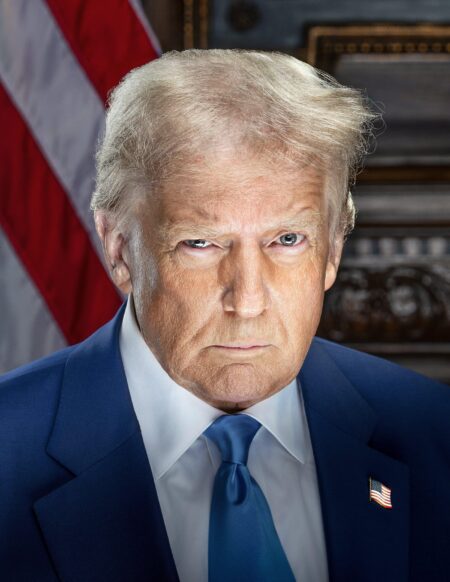The Trump administration’s move to slap a 35% tariff on Canadian goods has ignited fierce tensions between the U.S. and Canada, pushing trade relations to a breaking point and sending shockwaves through industry leaders on both sides
Browsing: international trade
The U.S. is intensifying its push on Brazil to align trade and technology rules, aiming to dismantle obstacles that stand in the way of American businesses. This bold effort underscores the rising economic tensions between the two countries
Canada’s finance chief dialed down hopes for a tariff-free trade deal with the U.S., highlighting the challenging path that lies ahead in negotiations. This frank admission casts a spotlight on the intense tensions driving the future of bilateral trade discussions
Brazil is actively engaging with U.S. officials to prevent looming tariffs that threaten crucial exports. These high-stakes talks aim to protect smooth trade flows and reinforce the strong economic ties between the two nations
China’s economy continues to surge forward, demonstrating remarkable resilience despite the tariffs imposed by the Trump administration. Experts highlight booming exports and vibrant domestic demand as the key engines fueling growth amid ongoing trade tensions
Former U.S. President Trump has ramped up trade tensions by threatening Brazil with an eye-popping 50% tariff. The Atlantic Council explores how President Lula can skillfully navigate this challenge to protect Brazil’s economy and bolster its diplomatic ties
The U.S. has hit Brazilian goods with a hefty 50% tariff, citing economic concerns and escalating tensions linked to the trial of former ally Jair Bolsonaro, ramping up the trade battle between Washington and BrasÃlia
Nvidia just dropped thrilling news: the U.S. government has eased restrictions on selling AI chips to China, allowing the tech giant to resume shipments and tap into fresh growth opportunities in this vital market!
President Trump has announced a bold new 25% tariff on imports from Japan and South Korea, kicking in on August 1. This striking move aims to tackle trade imbalances amid rising tensions with some of America’s closest allies
Former President Donald Trump is demanding an immediate stop to Bolsonaro’s trial and has imposed a hefty 50% tariff on Brazilian imports, escalating the growing tensions between the US and Brazil, reports The Guardian
Canada is expanding its natural gas reach by launching exports to Asia, venturing beyond its long-standing U.S. market. This exciting shift not only diversifies trade partnerships but also taps into Asia’s rapidly growing energy demand, marking a vibrant new era in Canada’s energy strategy
Brazil has limited options to dodge the U.S. tariffs imposed during the Trump era, but surprisingly, the nation is handling the challenge far better than expected. Backed by robust trade agreements and a wide variety of exports, Brazil is effectively softening the economic blow, Reuters reports
President Trump’s bold decision to impose a 50% tariff on Brazilian imports signals a striking new era in trade policy, boldly declaring that no market or nation is beyond the reach of U.S. tariffs, Bloomberg reports
Brazilian President Lula told Bloomberg that Brazil is more than ready to face the U.S. tariffs introduced during Trump’s administration, emphasizing the country’s strength and resilience to thrive independently without relying heavily on American trade
President Trump has announced a striking 35% tariff on Canadian goods, scheduled to kick in on August 1. He warned that even steeper tariffs could be imposed if Ottawa retaliates, escalating the fierce trade showdown between the U.S. and Canada
Tariff anxiety is sweeping across Japan, the Bank of Japan’s latest report reveals. Rising trade tensions and impending tariff increases are rattling businesses, shaking economic confidence, and forcing exporters to proceed with caution
Economists are raising urgent concerns about Trump’s new tariff on Brazil, warning it sets a “scary precedent” despite the U.S. enjoying a trade surplus with the country. This bold action ignites fears of escalating trade conflicts and sparks anxiety over potential retaliatory measures
Former President Donald Trump is gearing up to impose a staggering 35% tariff on Canadian goods, intensifying the trade showdown between the U.S. and Canada, reports The Week. This daring move targets key industries, sending shockwaves through both countries
Brazil’s President Lula has fired back with a bold promise of reciprocal measures following former U.S. President Trump’s tariff announcement, signaling a potential escalation in trade tensions. This latest move underscores the ongoing challenges that continue to define Brazil-U.S. economic relations
Former President Trump has announced daring plans to impose a staggering 50% tariff on Brazilian goods, charging the U.S. government with conducting an unyielding ‘witch hunt’ against Jair Bolsonaro. This striking decision signals a major escalation in the already tense relations between the two nations

